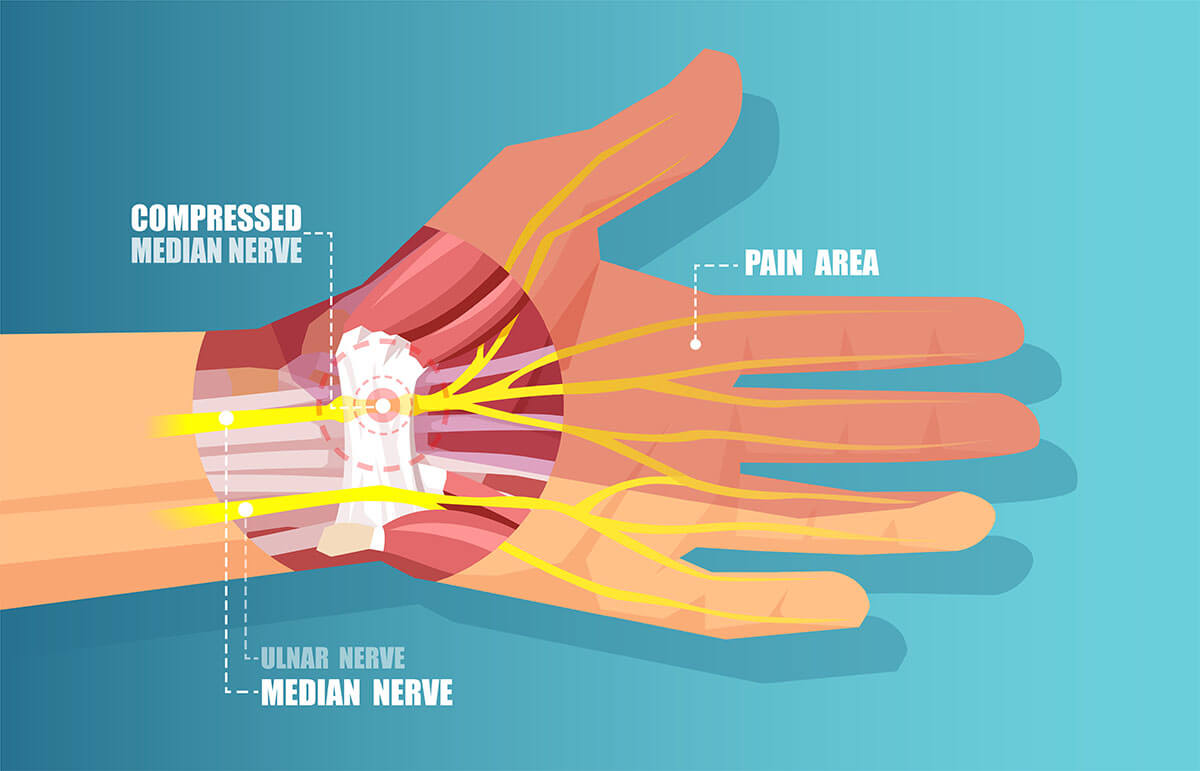Carpal tunnel syndrome (CTS) is a common condition that affects the median nerve. This condition can cause pain, numbness, and tingling in the hand and wrist area. Unfortunately, CTS is becoming increasingly common due to our over-reliance on technology and frequent computer use. Home healthcare providers in Vernon and Salmon Arm BC should be aware of the causes, symptoms, and treatments for this condition.
What Causes Carpal Tunnel Syndrome?
CTS occurs when the median nerve becomes compressed or entrapped as it passes through the carpal tunnel in the wrist. The carpal tunnel is a narrow passageway made up of bones and ligaments that allows nerves and tendons to travel from your forearm into your hand. When this passageway becomes too narrow—as can occur due to swelling or inflammation—the median nerve can become pinched, leading to CTS. Overuse of the hands and wrists is one of the most common causes of CTS; however, other contributing factors include diabetes, arthritis, hypothyroidism, obesity, pregnancy, occupational hazards such as repetitive motions or vibrations from machinery/tools, or even genetics.
Pain or numbing sensation in the fingers (especially thumb), palm of hand, and wrist are key indicators of CTS. Other signs include burning sensations or “pins-and-needles” feeling in those same areas; decreased grip strength; difficulty picking up objects; clumsiness with small movements; swelling around your thumb area; pain radiating from your wrist into your forearm; trouble sleeping at night due to hand discomfort; or abnormal sweating in your palm or fingers. If you experience any of these symptoms it is important that you seek medical attention right away so that proper diagnosis and treatment can begin immediately.
In most cases conservative treatments like rest, ice packs/cold compresses on affected areas throughout the day (15 minutes every two hours), gentle stretching exercises specifically designed for CTS relief by a physiotherapist, wearing a splint at night to keep wrists straight while you sleep (a splint should only be used after consulting with an orthopedic specialist), over-the-counter medications such as ibuprofen or acetaminophen for reducing inflammation/pain associated with CTS will help reduce some discomfort associated with this condition. In more severe cases where conservative treatments have not been successful surgery may be recommended by an orthopedic specialist who specializes in treating carpal tunnel syndrome.


